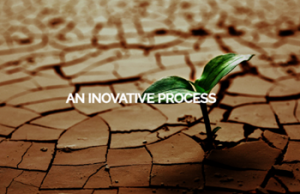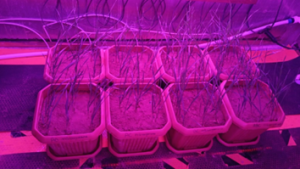The Project link; https://www.agroecologypartnership.eu/coolfarmlab
CO-creation Of Pathways to foster agroecoLogical transition of FARMs driven by Living LAB approach ;
AGROECOLOGY Partnership CoolFarmLab; ID 49
Background:
Agroecology is increasingly acknowledged as a holistic solution for addressing challenges in the agri-food system by applying principles from natural ecosystems to manage agroecosystems. It emphasizes biodiversity, resource efficiency, environmental impact mitigation, and knowledge exchange among farmers. Despite the growing interest and successful solutions in this field, a critical question remains about the scalability of agroecology to become the primary approach for a sustainable and resilient agri-food system.
The CoolFarmLab project is a pioneering initiative that aims to promote agroecology at the farm level, in line with the goals of the AGROECOLOGY 1 Co-funded Call. The project’s goal is to improve farm-level agroecology by encouraging crop diversification, developing agronomic methods for higher resilience and lower chemical inputs, and promoting natural pest, weeds and disease control. Its primary goals include creating innovative agricultural systems to aid in agroecological transition, improve soil fertility, increase resilience, reduce chemical inputs, and improve resource efficiency within a circular economy framework.
CoolFarmLab seeks to improve biodiversity and resilience in agricultural systems by diversifying species and genotypes at both the field and farm levels, such as site-adapted varieties, crop rotations, and intra-field diversification. The project’s strategies will include discovering and validating agroecological practices for soil fertility restoration, leveraging beneficial microorganisms and bio-based inputs, and comparing the multidimensional impacts of agroecological farming systems to conventional practices. Farmers and stakeholders will be taught agroecology concepts as part of a comprehensive training program, which will promote information exchange and capacity building for sustainable farming methods.
The project also focuses on aligning with European Green Deal objectives, supporting appropriate agricultural policies, and gathering knowledge on the performance of agroecological systems to inform decision-making and policy development. CoolFarmLab strives to promote socioeconomic prosperity and sustainable agricultural practices by providing farmers with vital agroecology skills and information. To maximize impact, the project will utilize the co-creation method for innovation development, dissemination, and outreach, fostering mutual learning mechanisms among farms, service providers, research institutions, and stakeholders. Living Labs will be activated to facilitate the experimentation of innovative solutions in real contexts, promoting collaboration and sustainable practices within the agricultural sector.
CoolFarmLab is dedicated to overcoming barriers to innovation adoption on farms, enhancing social and relational capital, and integrating agroecology and sustainable management principles to address environmental challenges and promote long-term ecosystem health. Through dissemination and communication activities, the project aims to engage stakeholders within the food chain, optimize results, and effectively share outcomes through various platforms and collaborations.
In conclusion, CoolFarmLab represents a comprehensive and innovative approach to advancing agroecology, sustainability, and rural livelihoods, with the ultimate goal of contributing to a more sustainable agriculture and food production system.
Challenges
Agroecology is receiving increasing attention in recent years and is considered a most comprehensive solution to the many challenges faced in the agri-food system. The main objective of CoolFarmLab consortium is to deepen the knowledge on the agroecological management of mainly rainfed cropping systems and to facilitate their dissemination at farm level.
 Such goal will be achieved through innovative approaches of Living Labs (LLs) and participative approach of co-creation, involving the main players in the food supply chain both in the planning and implementation phases of the project activities. Objective of the project is also to propose new cropping systems for an “agroecological transition” and to evaluate them by on farm experiments
Such goal will be achieved through innovative approaches of Living Labs (LLs) and participative approach of co-creation, involving the main players in the food supply chain both in the planning and implementation phases of the project activities. Objective of the project is also to propose new cropping systems for an “agroecological transition” and to evaluate them by on farm experiments
EXPECTED IMPACTS;
i)Enhance biodiversity and resilience in agricultural systems by promoting species and variety diversification at both field and farm levels.
ii)Adapting to climate change by selecting species and genotypes that suit local soil and climate conditions, as well as encouraging soil carbon sequestration and crop residue reuse.
iii)Improved resource efficiency through ecologically stable cropping systems, soil fertility enhancement with beneficial microorganisms, and utilization of biobased fertilizers and innovative mulching techniques.
iv)Alignment with European Green Deal objectives, including the Common Agricultural Policy (CAP) and the Farm to Fork plan, as well as support for relevant national and regional agricultural policies.
v)Evidence generation and consolidation on the multidimensional performance of agroecological systems, with the goal of guiding decision-making and policy development.
vi)Empowering Farmers and Boosting Socio-Economic Prosperity by equipping farmers with essential skills and knowledge in agroecology, thereby promoting sustainable agricultural practices.
RESULTS
CoolFarmLab project aims to optimize results and impact by informing and engaging various stakeholders within the food chain through its exploitation and dissemination plan. The objective will be achieved through actions such as:
Developing a detailed Data Management Platform (DMP) to ensure data is Findable, Accessible, Interoperable and Re-usable (FAIR);
 Facilitating the exchange and training of PhD students and staff members across the Consortium’s laboratories;
Facilitating the exchange and training of PhD students and staff members across the Consortium’s laboratories;
Implementing joint resources and management plans, including the use of shared genetic resources, management strategies, and experimental fields.
Collaborating with Third Parties as breeders, international organizations, service agencies and local agencies of extension services, leveraging existing partnerships with entities like the “Distretto agroecologico Murge e Bradano” from Puglia and Basilicata and the Agency for Rural Development of Basilicata Region.
Organizing Regional, National and International meeting meetings to disseminate project outcomes and findings effectively.




